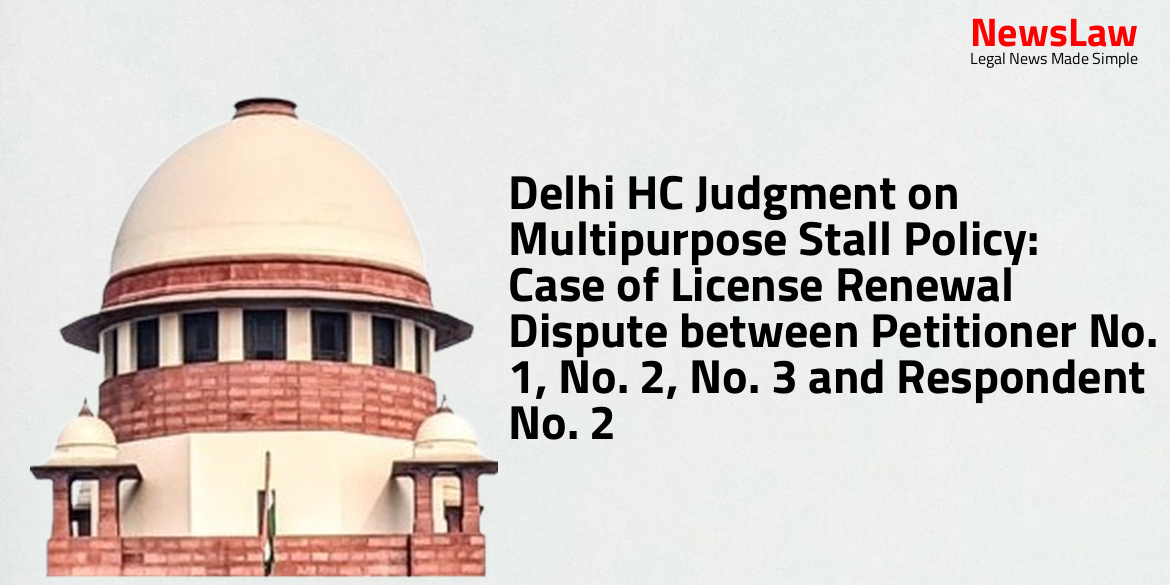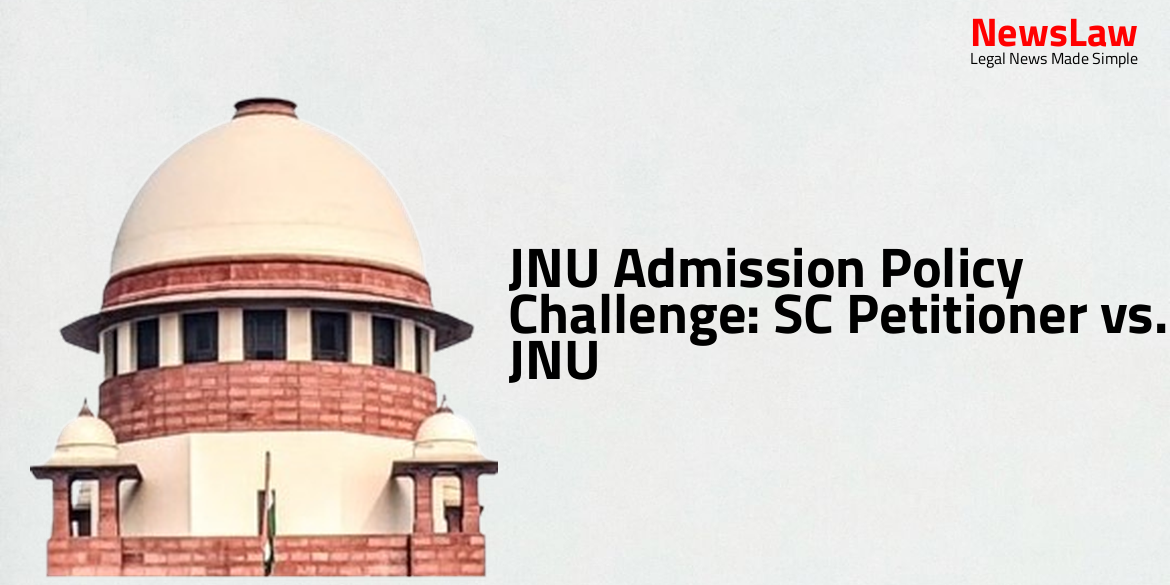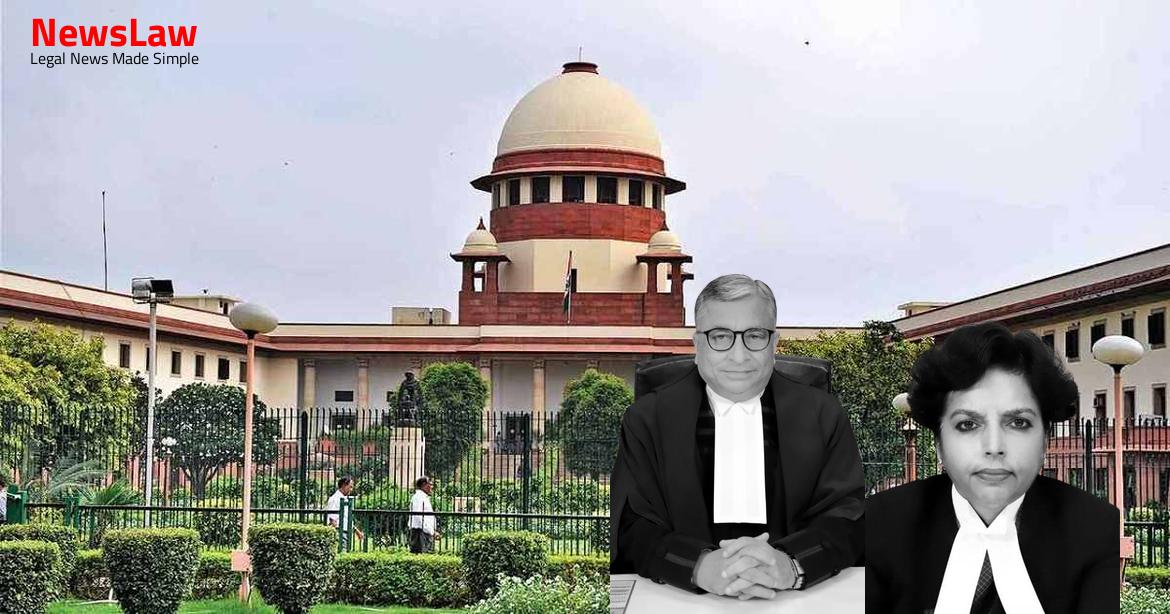Explore the recent Delhi High Court judgment addressing a license renewal dispute under the Multipurpose Stall Policy. The case involves Petitioner No. 1, No. 2, No. 3 and Respondent No. 2. Stay informed about the intricacies of this legal battle and its implications on policy interpretation and business operations.
Facts
- The tenure of the petitioners’ licenses was initially until 21.12.2022 but was extended to 27.02.2023 due to Covid-19 lockdown.
- The Master License Agreements did not allow for extension or renewal.
- Petitioner No. 2 and Respondent No. 2 executed their agreement on 29.10.2021.
- Petitioner No. 3 and Respondent No. 2 executed their agreement on 17.08.2020.
- The petitioners were directed to vacate their MPS on 27.02.2023.
- Petitioner No. 1 operates three MPS at Bareilly Railway Station.
- Petitioner No. 2 operates one MPS at Moradabad Railway Station.
- Petitioner No. 3 operates one MPS at Haridwar Railway Station.
- The conversion of stalls/trolleys to MPS was enforced by Northern Railway in 2017 under the 2017 Policy.
- The agreements confirming the license arrangements were signed by each petitioner and Respondent No. 2 on different dates.
Arguments
- Petitioners argue that the extension of the contract due to Covid-19 is arbitrary, especially compared to other MPS units in different railway zones.
- They claim that foot traffic decline at railway stations led to reduced license fees from June 2020 to March 2022, and they should be entitled to a proportional extension of the license period.
- Petitioners believe that Clause 5 of the 2017 Policy violates Article 14, Article 19(1)(g), and Article 21 of the Constitution by taking away the right of renewal and forcing competition against larger companies.
- They request a writ of mandamus to compel relevant zonal railways to renew and extend their licenses.
- Petitioners insist that the 2017 Policy is arbitrary and discriminatory, while respondents argue it is legally sound and non-arbitrary, applicable universally.
- Petitioners rely on various court decisions to support their arguments against the 2017 Policy.
- They express a legitimate expectation for license renewal and sustainable business operations.
- Arguments include coercion, economic duress, and unequal bargaining in converting stalls to MPS units.
- Petitioners argue that the new policy allows for livelihood opportunities and prevents monopolization.
- Petitioners emphasize their lack of participation in tender processes since stall allocation.
- The petitioner signed a contract for a period of five years which was non-renewable.
- The petitioner cannot go back to a policy that is no longer in existence after enjoying the benefits of the contract.
- The judgment of the Supreme Court cited by the petitioner was related to Catering Policy, not the Multipurpose Stall Policy.
- The petitioner’s contract fell under a different policy than the Catering Policy mentioned in the Supreme Court judgment.
- The petitioner cannot claim the benefits of earlier policies after completing the contract under the current policy.
Analysis
- The 2017 Policy provides for a 33% sub quota for women in the allotment of each reserved category of MPS at all stations.
- Clause 9 of the 2017 Policy specifically mentions reservation in allotment for marginalized sections of society.
- The appellants do not have an indefeasible right of renewal under the Easements Act or the 2017 Policy.
- The petitioners voluntarily converted their stalls/trolleys to MPS.
- A Force Majeure clause is advised to be implemented for catering and vending contracts during lockdown.
- The petitioners did not challenge the letter dated 21.05.2020 by the Railway Board.
- The 2017 Policy upholds the rights of marginalized minorities and weaker sections of society.
- There is no transfer of interest in the property or violation of Article 14 by the railways’ actions.
- Granting a license in perpetuity would contradict the equality of opportunity guaranteed by the Constitution.
- The petitioners’ claim for renewal is deemed baseless as the 2017 Policy clearly states no extension or renewal of MPS units.
- Territorial jurisdiction to entertain writ petitions is determined by the authority to whom the writ is issued.
- Individuals from reserved categories are allocated MPS units exclusively from those reserved categories.
- The policy allows existing licensees to participate in fresh bids if they meet eligibility criteria.
- The petitioners’ reliance on a larger extension of tenure is deemed misplaced.
- Extension of license period due to Covid-19 was granted by the railways based on Force Majeure considerations.
- A license is revocable at the will of the grantor, and the petitioners do not have a perpetual right to seek renewal.
- The challenge to Clause 5 and 11 of the 2017 Policy is considered unsustainable.
- The specific part of the judgment discussed in this section is Section 55.
- This section likely delves into a particular aspect of the case or law being analyzed.
- Further details or specifics about the content of Section 55 are not provided in this extract.
- The courts interpret the laws and engage in a creative process in this interpretation.
- Judicial review of a policy decision and issuing a mandamus to frame policy differ fundamentally.
- A legitimate expectation does not always entitle the expectant to relief; public interest, policy changes, conduct of the expectant, or valid reasons by the decision-maker can negate it.
- A public body like the respondent Board cannot arbitrarily decline to renew a license as they do not have arbitrary powers under the constitutional system.
- Decisions regarding license renewal should have a rational purpose unless there are compelling reasons indicating otherwise.
- Granting of relaxation in the past due to policy reasons does not automatically entitle similar relaxation in the future as a matter of right.
- A writ of Mandamus cannot be used to direct the enactment of laws or framing of rules, it is for enforcement of fundamental or statutory rights.
- Individual license agreements and the 2017 Policy have an arbitration clause
- Petitioners can invoke arbitration if aggrieved due to Covid-19 situation or claim damages
- Petitioners can initiate appropriate proceedings through the arbitration clause
Decision
- Existing stalls/trolleys can be converted into Multipurpose Stalls (MPS) as per the 2017 Policy.
- Existing licensees have the option to convert their stalls/trolleys to MPS or continue with the current arrangement till expiry.
- Conversion to MPS grants a tenure of 5 years from the date of conversion.
- After the current agreement expires, new MPS space will be allotted by Zonal Railways.
- Existing stalls can be converted to MPS by paying the License Fee quoted for a similar MPS unit at the station.
- Petitioners opted to convert their stalls/trolleys to MPS for the advantages offered by the 2017 Policy.
- A period of 3 months granted to petitioners to vacate the stalls after the extended license period or judgment date, whichever is later.
Case Title: SMT PARMILA SHRMA Vs. UNION OF INDIA AND ORS. (2024:DHC:4452)
Case Number: W.P.(C)-5597/2024



